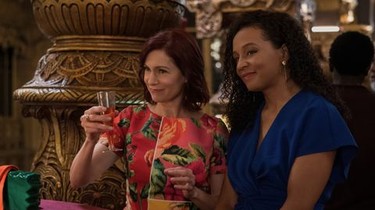
To imagine the nightly glow of Stephen Colbert's Late Show sign dimming permanently is to contemplate a minor tremor in the cultural landscape. For nearly a decade, and even longer if one counts the satirical reign of his Report persona, Colbert has been a fixture of our evenings, a witty, incisive, and often genuinely earnest voice navigating the tumultuous currents of news and culture. The hypothetical scenario, then, of the Late Show’s cancellation, swiftly followed by Colbert’s reappearance as a late-night host – albeit a fictional one – on CBS’s Elsbeth, isn't just a casting note; it’s a beautifully meta, poignant, and deeply illustrative moment for the ephemeral nature of television, the resilience of persona, and the ever-blurring lines between reality and performance.
Firstly, let's consider the weight of the Late Show cancellation itself. For a host of Colbert’s caliber, it wouldn't merely be the end of a job; it would mark the cessation of a daily dialogue with a nation. His Late Show, particularly in its post-Trump era, evolved into a unique blend of sharp political commentary, genuine interviews, and moments of unvarnished emotional vulnerability. He became a trusted guide, a voice of reason, and a purveyor of intellectual humor. The end of such a run would leave a palpable void, both for his dedicated audience and for the late-night landscape itself. The daily rhythm, the monologues, the musical guests, the desk and the city skyline – all would recede into memory, a significant chapter closed.
Now, into this hypothetical void steps Elsbeth, a show that itself thrives on the delightfully askew. A spin-off from The Good Wife and The Good Fight, Elsbeth features Carrie Preston’s titular character, a brilliant, idiosyncratic lawyer-turned-investigator, navigating the sophisticated and often absurd world of New York City’s elite. The show is characterized by its clever plotting, its distinct visual style, and its embrace of the quirky. It’s a series that understands and celebrates the theatricality of life, making it the perfect stage for a meta-performance.
Colbert’s potential appearance on Elsbeth as a fictional late-night host becomes a brilliant, self-referential joke. It’s not just a cameo; it’s a commentary. Imagine the scene: Elsbeth, with her brightly colored ensembles and unyielding optimism, finds herself investigating a crime connected to the world of late-night television. And there, behind a desk, perhaps slightly rumpled or world-weary, sits Colbert. But this isn't our Stephen Colbert, the host of record. This is a fictionalized version, a doppelgänger, a ghost of a profession he just left.
The humor in this lies in the delicious irony. Here is a man who spent decades perfecting the art of the late-night monologue, interviewing countless celebrities and politicians, and dissecting the day's news, now playing a character who does the same. It begs a series of fascinating questions: Is this fictional host a more cynical version of Colbert? A perpetually cheerful one? Does he still make jokes about current events, or is his show a relic, a bygone era's take on entertainment? The performance would be layered with implied autobiography, a silent nod to his own journey. Every line delivery, every knowing glance, every slightly forced laugh would carry the echo of his real career, creating a rich tapestry of meta-narrative for the discerning viewer.
Beyond the humor, there’s a genuine poignancy to this hypothetical move. It illustrates the resilience of a performer's spirit and the enduring nature of their public persona. Even if the stage changes, the actor remains. It speaks to the idea that talent, charisma, and a unique voice will always find an outlet, even if it's in a slightly different guise. It's a symbolic reinvention, not of career necessarily, but of context. It offers a kind of artistic freedom, allowing Colbert to play with the very tools and tropes that defined his real-life career, but without the daily grind, the constant pressure of relevance, or the weight of being the singular voice.
Ultimately, Stephen Colbert playing a late-night host on Elsbeth after the cancellation of his own Late Show would be more than just a casting stunt. It would be a masterclass in meta-commentary, a poignant exploration of identity in the public eye, and a testament to the cyclical, ever-evolving nature of entertainment. It would be a final, knowing wink from a beloved cultural figure, reminding us that even when one show ends, the performance, in some form, always goes on.
